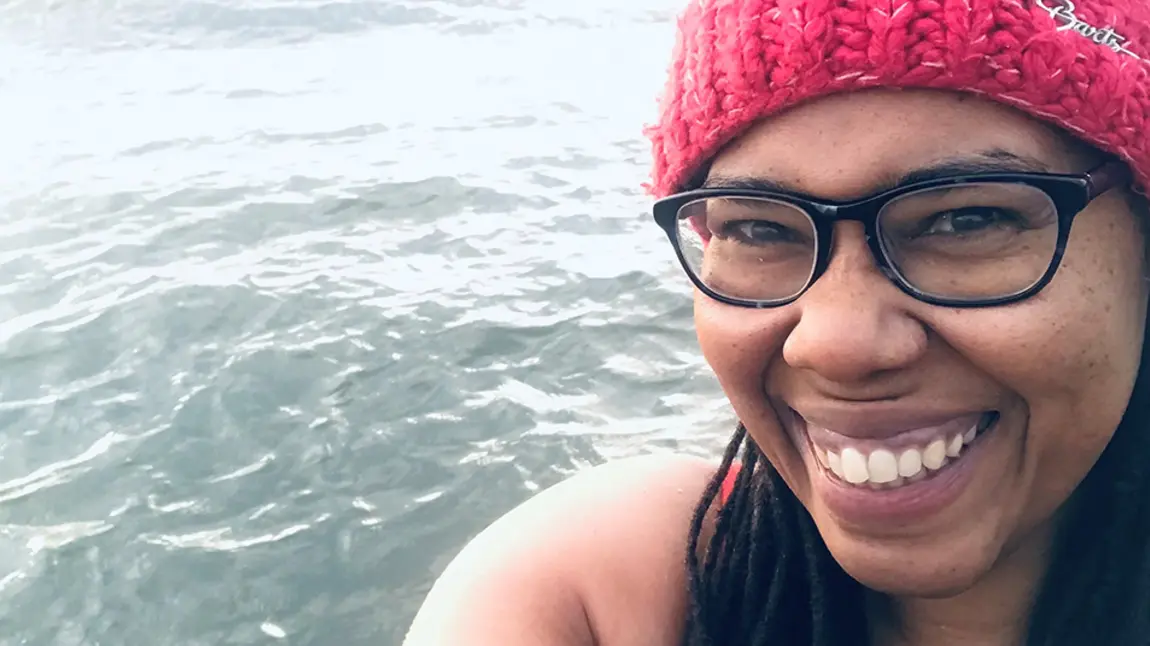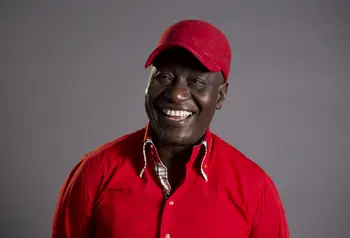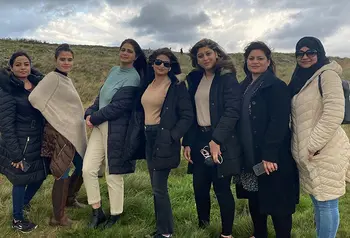Dr Sheree Mack: passion projects and empowering women

Page last updated: 13 July 2022
I became a leader in the natural heritage sector out of necessity.
After a traumatic experience, it was being with and in nature that brought me back to myself.
Then I looked around and saw women like me suffering and having difficulty just managing their day to day. I knew they were missing out on something that would help them to navigate this society that we find ourselves disadvantaged in.

So I started offering experience and opportunities with and in nature to my friends and groups because I couldn’t keep this newfound connection with nature to myself. I’d fallen in love with nature and it so follows I fell in love with myself. Women of colour need to fall in love with themselves as soon as they can in order to not just survive but thrive in society.
We all have the power within us to be our own leaders.
I’ve since passed this on to my children, friends, family and the individuals and groups I’ve had the honour to work with. I say "facilitate" more than as I say "lead" we all have the power within us to be our own leaders.
We have a part to play
From January 2019 to December 2021, I coordinated the Wayfinding project, which created opportunities for people of diverse ethnic communities to not only enjoy the outdoors and wildlife in their local area, but help others to engage with it too.
The women of colour I meet while I’m walking, hiking or even getting into the sea and lochs are the people I admire. It takes guts to get out there.
Being leaders within the natural environment means providing positive role models for others who look like us – to show that we can do this, we have a part to play in all aspects of society. Far too often we as Black women and women of colour are told that we are not good enough. We have to work to be accepted and admired in a system which is set up for us to fail.
For me, the women of colour I meet while I’m walking, hiking or even getting into the sea and lochs are the people I admire. It takes guts to get out there.
Empowering women to become leaders
To find women who look like us, out there, doing it, leading groups, sharing their knowledge and experiences with their community is inspiring and more role models are needed.
Two of the strands of the project I ran helped to do this.
The Black Women’s Leadership System empowered Black women to undertake the Lowland Expedition Leadership Programme. This nationally recognised qualification gave them not just the knowledge, experiences and confidence to step up and lead their groups into nature but also broke down barriers around who has a right to be out in the British countryside.

The SHEROES programme has also been going for about four years now, it focuses on a group of inner city Muslim girls aged 8-14, who came together for a number of different projects aimed at rooting them further into their home and culture within the North East.
It is never too soon or too young to become a leader. And we are never too old to learn from those younger than us.
During the Wayfinding project, the SHEROES met up every Saturday morning to visit different nature reserves and Durham Wildlife Trust sites. As time went by, the girls grew in knowledge and confidence as well as becoming role models for each other. They pushed each other out of their comfort zones to try new experiences such as bee catching, pond dipping, willow weaving and hiking.
It is never too soon or too young to become a leader. And we are never too old to learn from those younger than us. I know being around the SHEROES taught me a lot about letting go and being in the moment.
Never give up on your idea
Being part of the natural heritage upon our doorsteps is vitally important for women in general, and especially for women of colour.
If anyone wanted to follow in my footsteps, and run a Heritage Fund project like mine – or to preserve any heritage – I would first say that they must believe in themselves, the project and what they plan to do as they need to be talking to everyone about it. You have to be passionate about what you plan to do with the funding as there are so many hurdles and difficult times to get through.
We knew we were filling a gap, offering opportunities for healing and growth and development and that kept us focused.
I would definitely get advice from workshops offered by the Heritage Fund on how to apply. Get to know and seek help from the team. Chase the backing and support of communities; it also helps immensely to get some creditable partners on board with the project.
Have plans for the project but also be flexible. The coronavirus (COVID-19) pandemic hit while we were half-way through so we had to pivot how we were working in order to keep going and offering opportunities with and in nature.
We knew we were filling a gap, offering opportunities for healing and growth and development and that kept us focused when we were rejected on our first application. We listened to feedback and changed and we were successful on our second attempt. Never give up and never surrender!
Working to change the narrative

Now the project has ended, I’m taking time out due to family illness and getting coronavirus myself to pause, reflect and breathe. Of course I’m doing this with and in nature as she supports my health and well-being and sense of self.
We’re coming back with series four of the Earth Sea Love podcast, which we launched as part of the project, soon.
And the goal is to make Earth Sea Love, the project name now, into a social enterprise so we can continue supporting the people we’ve been working with over the last few years.
But again this all takes time and what we’ve realised through this Wayfinding project is that SLOW is the way to go.
Those of us that are doing the work to change the narrative and bring about a more equitable society need and want to rest, recuperate and reflect before we start once again.
Find out more
Find out more about Earth Sea Love and how you can get funding for landscapes, parks and nature projects.


